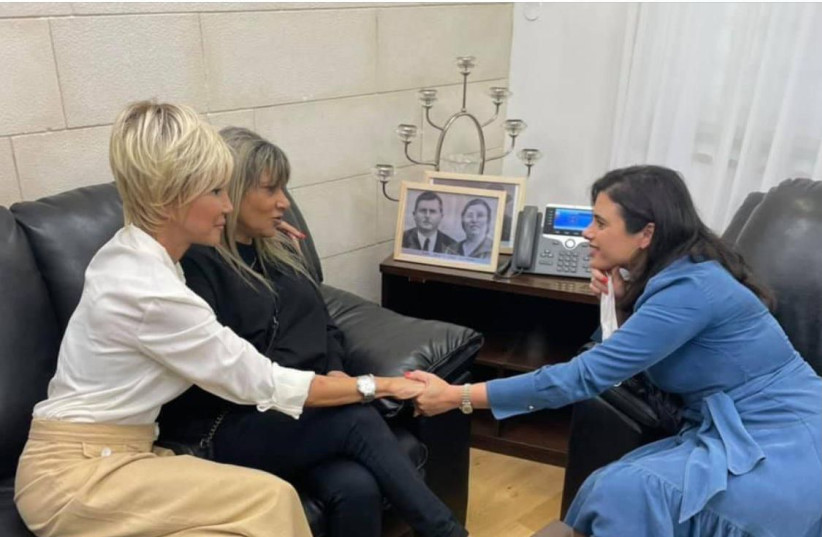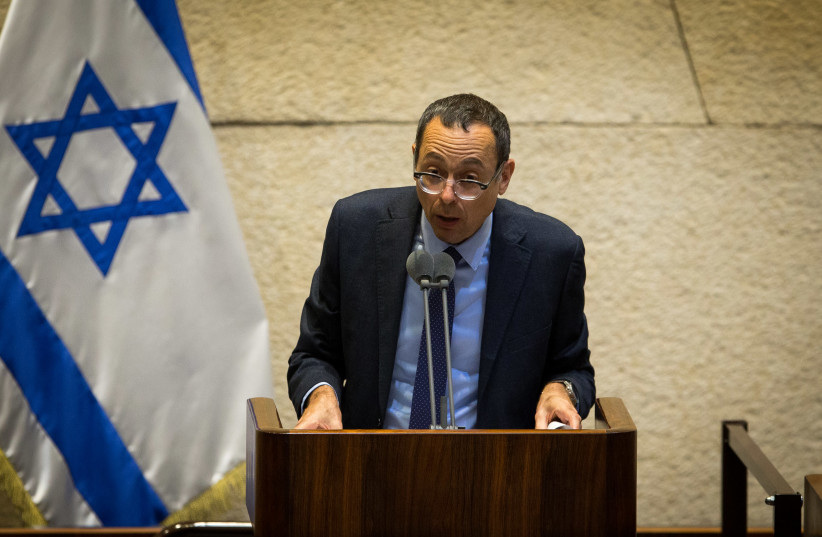Baruch Ben Yigal: The terrorist stopped me from being a parent, he shouldn’t stop me from being a grandparent.

Bereaved families who lost their sons during military service are fighting the state to allow them to become grandparents by using posthumously retrieved sperm from their child and a surrogate.
A bill put forward by MK May Golan (Likud) that would allow bereaved parents to use the sperm of their dead children was voted down last summer by the Ministerial Committee for Legislation.
However, lawmakers including MK Zvi Hauser (New Hope) are giving it a new push and are expected to bring it to a vote within a month.
Calling it one of the most complicated and sensitive issues that he has ever worked on, Hauser said it would be groundbreaking should the bill pass and that many other countries could follow suit.
“We tell people to place themselves in front of enemy bullets, to risk their life, for the good of the country,” he said. “In return, we have to give back to those who risk their lives. A lot of parents never knew of this option, and had many families known, they would have retrieved their son’s sperm.”
Families have sporadically retrieved the sperm from their fallen children in the past, Hauser said. “This can’t be done in an irresponsible way; the country has to format how it’s done,” he added.

The bill will have an in-depth framework surrounding the issue and “strongly establishes that parents should be allowed to use semen for the continuity” of their child’s bloodline.
It will give soldiers the option to give their written permission to retrieve their sperm should they perish. The spouse or parents of a fallen soldier can request to retrieve the sperm within 72 hours from his death.
“The bill says first, ‘Let’s ask the soldier,’” Hauser said. “Right now, we aren’t asking them, except in certain cases. But now we want to say, ‘Okay, let’s give the soldier the option to give his opinion when he drafts into the army.’”
The bill also stipulates that any child born to a fallen soldier would not be viewed as an IDF orphan and the mother will not receive any benefits that are given to children whose parent dies during military service. It also regulates the arrangement of families who have retrieved the sperm before it becomes law.
The members of the Ministerial Committee for Legislation are Justice Minister Gideon Sa’ar, Finance Minister Avigdor Liberman, Education Minister Yifat Shasha-Biton, Interior Minister Ayelet Shaked, Religious Services Minister Matan Kahana, Energy Minister Karin Elharrar, Construction and Housing Minister Ze’ev Elkin, Environmental Protection Minister Tamar Zandberg, Diaspora Affairs Minister Nachman Shai, Communications Minister Yoaz Hendel, Social Equality and Pensioners Minister Meirav Cohen and Aliyah and Integration Minister Pnina Tamano-Shata.
Baruch Ben Yigal’s son, St.-Sgt. Amit Ben Yigal, was killed during an arrest raid in the West Bank village of Yabad two years ago.
Ben Yigal said he had retrieved his son’s sperm shortly after he died.
“Amit, my son, was a hero,” Ben Yigal told The Jerusalem Post. “He was a soldier in Sayeret Golani [an elite combat corps], and he fell during operational activity. When it happened, we thought that the terrorist not only killed Amit, but he prevented us from becoming grandparents.”
“Amit was my only son,” he said. “The terrorist stopped me from being a parent, but I do not want him to stop me from being a grandparent.”
Ben Yigal said his son “really wanted to be a father. He wrote about it. He spoke about it.”
Ben Yigal said he has the names and contact information of 182 women from across the country who want to be the mother, and the only reason they have not moved forward is because the state is stopping him.
“The moment they allow us, we will be the first to do this,” he said. “This child will know who his father was, and he will have a grandfather – Saba Baruch. He will have everything. This child will only gain. He will get a warm family who wants him, who will love him.”
The initiative is also being pushed forward by Or Lamishpachot, a nonprofit organization for families of fallen soldiers run by Irit Oren Gunders. More than 1,500 families involved with the organization meet several times throughout the year, she said.
Gunders told the Post she is working with several families on the initiative, including Nitza Shmueli, whose son, Barel Hadaria Shmueli, was killed by a Hamas terrorist during a violent riot along the Gaza border last year.
“It’s happening now,” she said, adding, “There is another family in the same position as Nitza who is supporting her.”
Shmueli’s death sparked outrage among the Israeli public, as well as Nitza Shmueli, who posted on Facebook that Prime Minister Naftali Bennett was a “dog” and “murderer.”
Shmueli later deleted the posts, saying they were written when she was in “pain and frustration” following her son’s death.
That anger needs to be spent somewhere else, Gunders said.
“I tell families who are angry to let that anger go, spend the energy of that anger by helping me with other families, and be next to me,” she said. “There is nothing more supportive than knowing you are supporting someone else.”
“Every family that loses a son, it’s like the sky falls on them, and it’s on us to pick up the pieces and build a new path, a different path,” Gunders said.
Such a request is not unheard of in Israel, where since 2003 the Jewish state has allowed for posthumous sperm retrieval for surviving female partners who could later become pregnant through insemination or IVF.
There have also been other cases where parents who have lost their sons gave posthumously retrieved sperm to single women who later raised the children and have the couple act as parental grandparents.
Irit and Asher Shahar have been fighting the state for years to allow them to use the frozen sperm of their late son, Omri, who was killed in a car crash in 2012 while he was a captain in the Israel Navy. The couple has been waging legal battles with the state for years to be able to raise their deceased son’s child.
As reported by The Jerusalem Post
